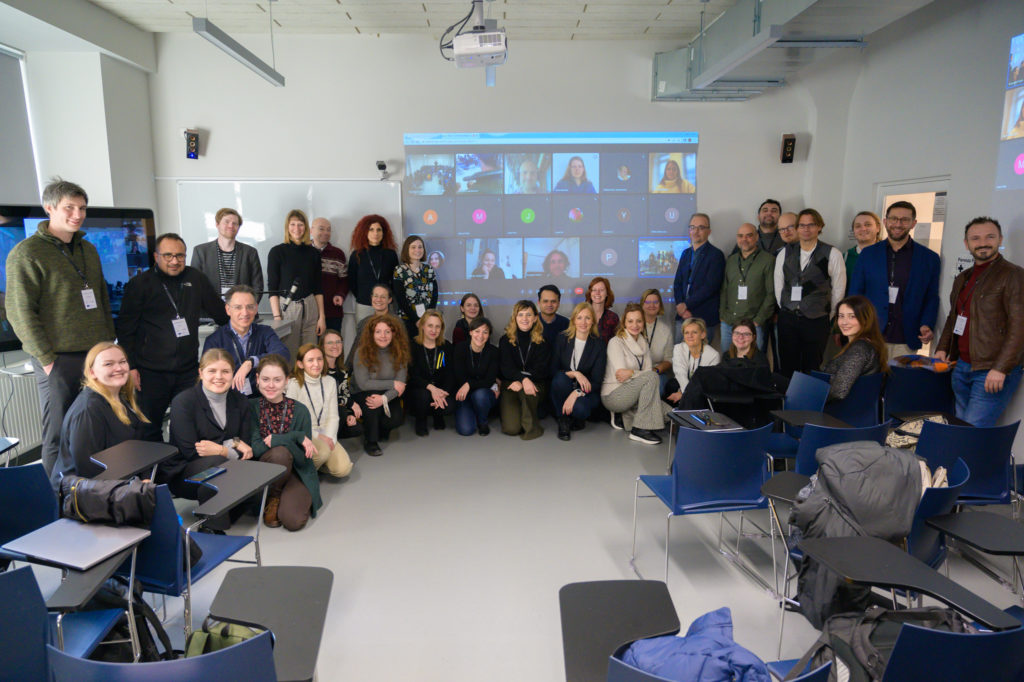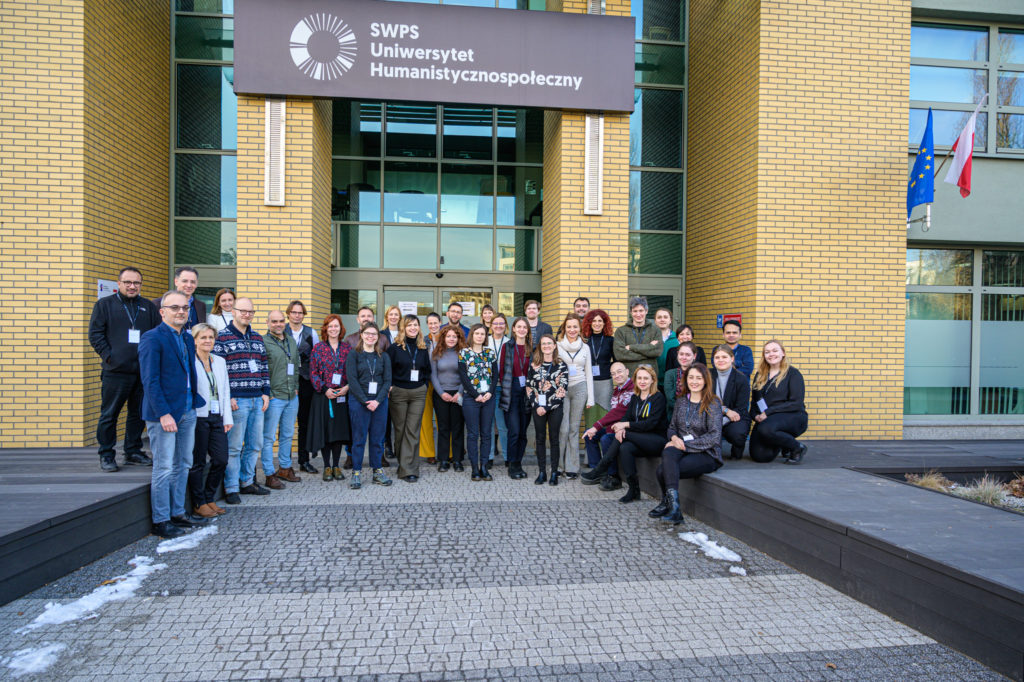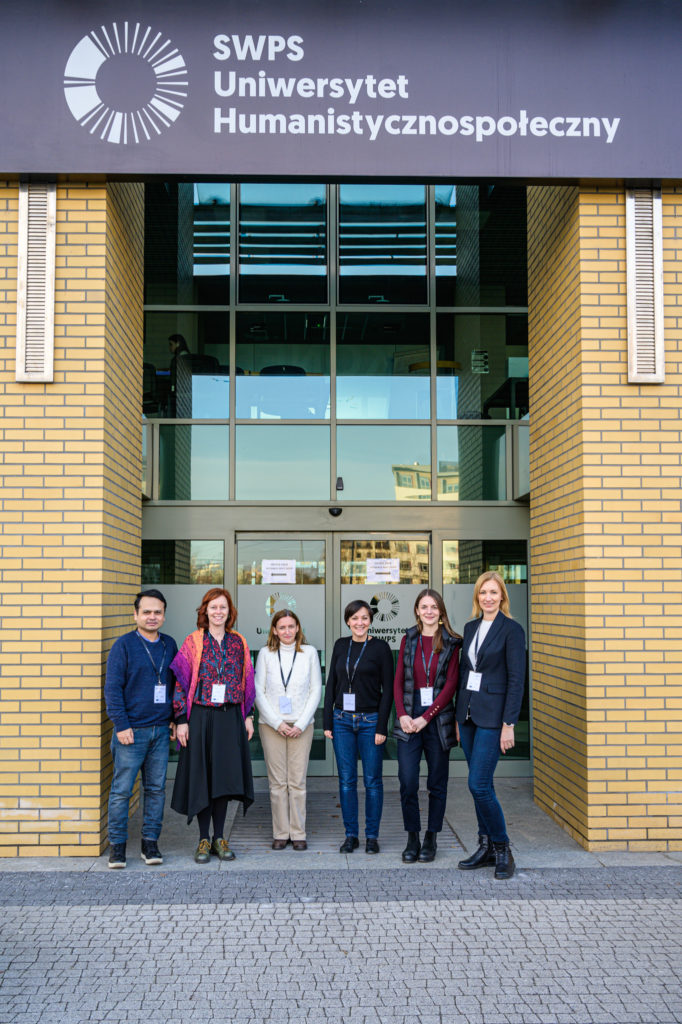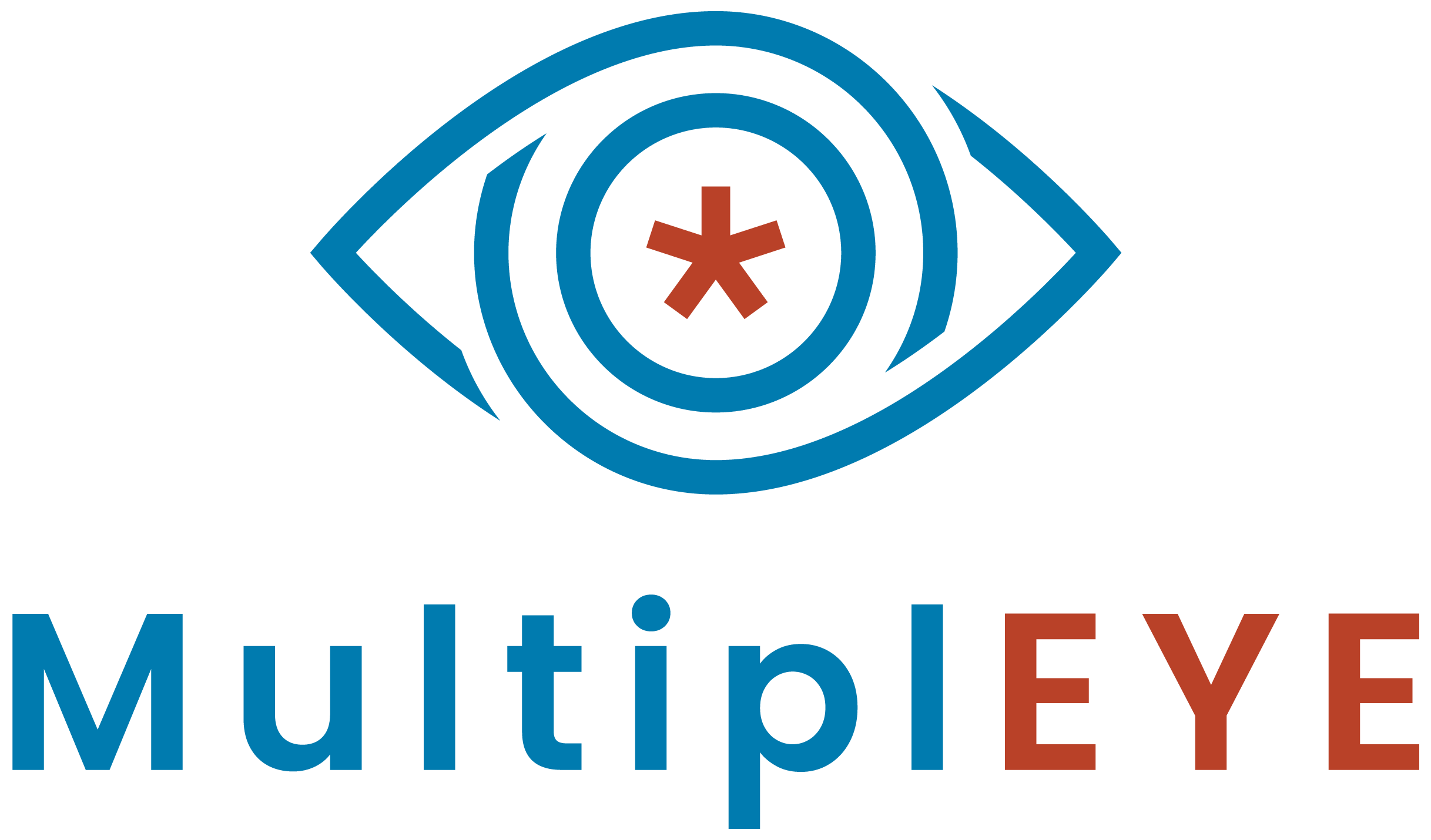February 9–10, 2023
In the framework of COST Action MultiplEYE, WG1 and WG2 had their first-in-person meeting on February 9–10, 2023, in Warsaw. The meeting, attended by both Management Committee members and Working Group members, was held in Poland SWPS University of Social Sciences and Humanities, a leading higher education institution with over 14,500 students. The main objective is establishing the design for the MultiplEYE data collection and eye-tracking methodology. During the meeting, there were presentations and workshops, aiming at providing insight on the current situation and proposals for further contribution to the WGs and Action objectives.

On the first day, there was a welcome speech by the local hosts, Izabela Krejtz and Krzysztof Krejtz, followed by an introduction by the Action Chair, Nora Hollenstein, Motivation & goals of the meeting. The participants were then divided in two different rooms, with Ramunė KASPERĖ, the Leader of WG1, moderating WG1 workshop: stimulus collection, and Duygun Erol Barkana, Timothy Papadopoulos, Evgenia Peristera moderating the WG2 workshop: methodology for literature review. In addition, WG1&WG2 participated in a joint workshop: stimulus annotation, moderated by Svitlana Matvieieva who explained stimulus annotation, how to describe the text in the corpus, including vocabulary, topic, genre, date, translation, etc. There was also another WG1&WG2 joint workshop, “Preprocessing pipeline” with moderator Daniel Krakowczyk who presented pymovements, the pre-processing pipeline, the process of processing eye tracking data, movement signals, the concept of a big library of datasets, etc. Finally, yet importantly, Lena Jäger, the Action Vice Chair, presented the last WG1&WG2 joint workshop: experiment design. During the workshop, Lena presented the experiment design and data collection structure.

The second day started with a joint workshop on data management & documentation, moderated by Marie-Luise Müller and Lena Jäger, where it was discussed on research data management plan, ethical responsibility for each country, difficulties of finding a common ground for each country, data access, data protection and privacy regulations, etc. It was followed by WG1 discussion: ethics approvals, moderated by Ramunė Kasperė, mainly highlighting issues related to research ethics approval. At meantime, there was a parallel meeting of WG2 on the organization of subgroups and definition of roadmap moderated by Duygun Erol Barkana, Timothy Papadopoulos, Cengiz Acartürk. The participants were reunited in a WG1&WG2 joint workshop: implementation of the experimental moderated by Deborah Jakobi and Lena Jäger. Participants are encouraged to engage with one of the following tasks: selecting stimuli, screen layout, and other more specialized tasks. At the very end of day 2, there was a final WG1&WG2 joint discussion and distribution of tasks for next steps.


by Ekaterina Strati
“Aleksander Moisiu” University, Durres, Albania
